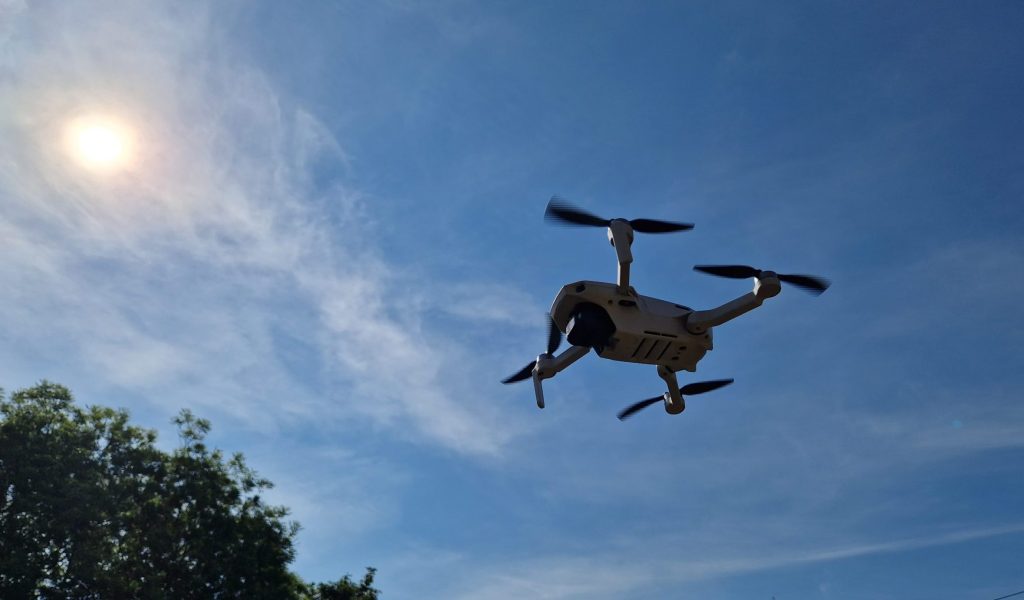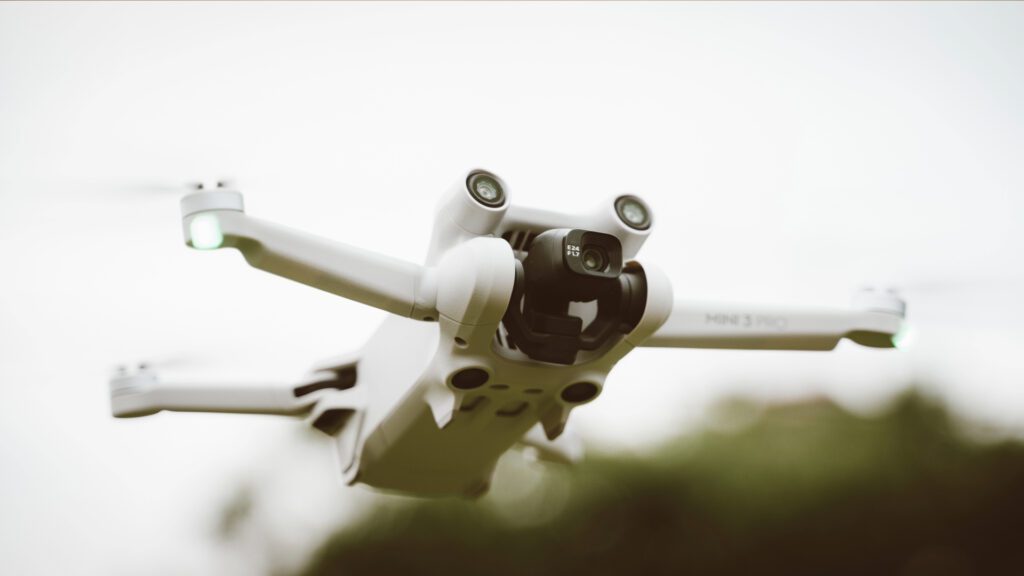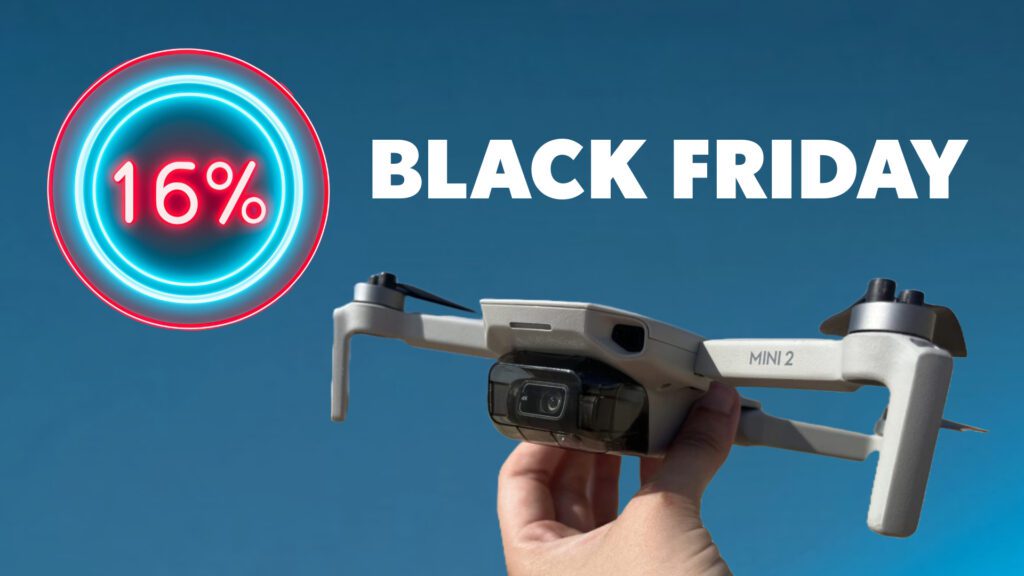The reason you’re here is probably because you’re asking yourself this question. Is it worth getting a drone in 2023? Well, the answer is yes and no.
Because it depends on what you want to get out of having a drone.
Is it to expand your photography and/or videography skills? Do you want to race drones? Or does the idea of piloting a drone just sound like fun to you?
Here, we’ll delve into the reasons drones are worth it and the important considerations you may need to consider when you decide whether a drone is worth your investment.
It’s worth it if you are thinking about the following:
Aerial photography and videography
Drones provide a unique perspective from above, allowing you to capture stunning photos and videos that were previously only possible with expensive equipment or aircraft rentals. They offer a creative outlet for photographers and videographers to capture breathtaking landscapes, events, and special moments.
From sweeping landscapes to dynamic action shots and captivating aerial views, drones allow for a level of visual storytelling that was once limited to professionals with expensive, specialised equipment. The ability to effortlessly manoeuvre in the sky provides endless opportunities for experimentation and creativity. Whether it’s capturing cinematic scenes, tracking moving subjects, or revealing the scale and beauty of a location from above, drones offer a fresh and captivating approach to photography and videography.
Drones can effortlessly follow fast-paced sports, capturing aerial shots that provide a comprehensive view of the game or event. Whether it’s water sports or downhill mountain biking, drones can enable stunning aerial cinematography that adds excitement and a dynamic angle to the footage. They offer the flexibility to manoeuvre swiftly, keeping up with the action and delivering impressive shots.
If you are someone wanting to experiment with a new angle, whether it be outdoor sports or landscapes, drones can offer angles that cameras, smartphones and the naked eye cannot.
Exploration and adventure
Drones have opened up new possibilities for exploring remote or inaccessible areas.
With their ability to navigate rugged terrains and reach distant locations, drones allow hobbyists to venture into uncharted territories and capture breathtaking aerial views. For example, if you are an avid hiker or fell walker, piloting your drone at the top can showcase a new perspective from above.
Whether it’s exploring dense forests, scaling majestic mountains, or surveying picturesque landscapes, drones provide a unique perspective and a sense of adventure.
Recreational enjoyment
Sometimes it’s worth the purchase if you just want to try something new. Because, let’s face it, not all of us are going to get the opportunity to pilot a plane in our lifetime, so piloting a drone is the next best thing.
Drones can offer a thrilling and enjoyable recreational activity. Whether flying for fun, participating in drone races, or performing acrobatic manoeuvres, drones can provide a unique form of entertainment.
Before continuing, here are a few general laws to be aware of beforehand:
- Register your drone, if required by your country’s aviation authority.
- Familiarise yourself with the drone’s user manual and understand its features and limitations before flying.
- Fly in open areas away from people, buildings, and obstacles to minimise the risk of accidents.
- Maintain a visual line of sight (VLOS) of your drone at all times.
- Respect the privacy of individuals and avoid flying over private property without proper permission.
- Adhere to altitude restrictions set by your country’s aviation authority, typically below 400 feet (120 meters).
- Avoid flying in no-fly zones such as airports.
- Do not fly your drone under the influence of alcohol or drugs.
- Be aware of and follow any additional regulations or restrictions specific to your location, such as national parks or sensitive areas.
Now, onto the considerations:
Regulations
One of the biggest hoops to jump through is the local regulations and laws surrounding drone flying. These can vary from country to country, and region to region.
If you live in an urban area with restricted airspace or have limited open spaces for flying, the practicality of owning a drone may be reduced. Privacy within people’s gardens and owned land, such as National Trust parks in the UK, are considerations are things to bear in mind. Also, be aware of the no-go zones. For example, controlled airspaces such as airports and crowded areas are off-limits.
There are a few loopholes to this >> read here. COMING SOON.
It’s worth looking at Google Earth or Maps and checking out potential places you may want to drone and whether there are any restrictions on doing so.
Additional costs
When buying a drone, it is important to consider not only the upfront cost but also the potential additional costs. Understanding these costs will help you make a more informed decision about whether a drone is a worthy investment for you, and help you avoid any unexpected financial burdens down the line.
Drones come in a wide range of prices, from budget-friendly options to high-end professional models. Your budget and intended use will play a significant role in determining what qualities/features you prioritise and a suitable price range.
In addition to the drone itself, it’s essential to consider the cost of accessories. Depending on your requirements, these may include carrying cases, memory cards, and filters, depending on your specific requirements. These accessories can enhance your drone flying experience, the quality of footage captured, and ensure you are well-prepared for different scenarios.
Another aspect to consider is the cost of insurance. While not mandatory in all regions, it is wise to evaluate whether drone insurance is necessary for you. Insurance can provide coverage for accidental damage, theft, or liability issues, offering peace of mind and financial protection. Research different insurance options available and assess whether it aligns with your risk tolerance and flying circumstances.
Finally, if you plan to capture aerial photographs or videos, it is worth considering the additional cost of editing software. Quality post-processing software can enhance your footage and allow you to create professional-looking content. This is worth bearing in mind if you are considering using the drone for commercial purposes. There is a range of subscription and final prices when it comes to editing software, such as Adobe Suite, or Final Cut Pro, or potentially look into free alternatives.
To summarise, here are a few questions to ask yourself when considering whether it is worth it to buy a drone. Figure out your intent as well as whether it is worth the potential drawbacks.
- What do I intend to use the drone for? For example, aerial photography/videography, recreational flying, or other specific purposes?
- What is my budget for purchasing a drone, including any additional costs?
- Are there any legal restrictions or regulations regarding drone usage in my region/locality?
- Do I have access to suitable flying locations?
- Are you planning to use the drone for commercial purposes and are there laws around this?
Hopefully, this helped you decide whether buying a drone is worth it in 2023. At the end of the day, the choice is personal to you and only you can decide whether it is worth the investment.
Sometimes just the act of wanting to try something new is 100% worth the purchase.




